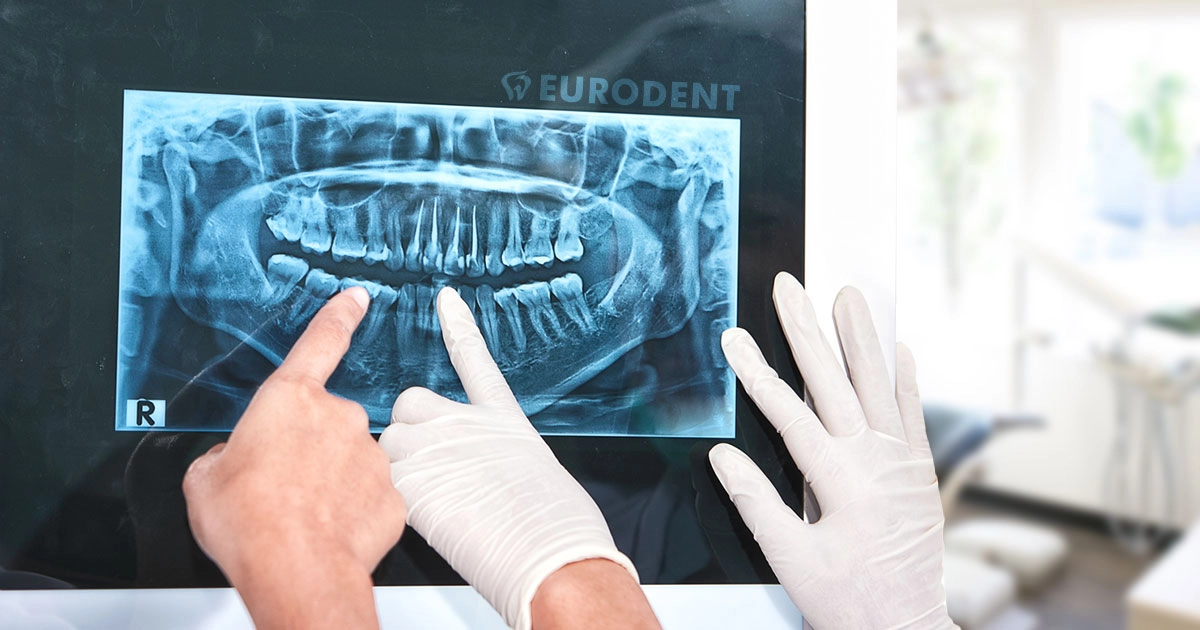Welcome to our comprehensive guide to periodontitis, a common disease that affects the gums and tooth-supporting systems. In this article, we will explore in detail what periodontitis is, what the symptoms are, the causes, and the treatment options available. We will also discover how to effectively prevent this condition and maintain good oral health.
Figure 1 – Periodontitis, the invisible disease that threatens your gums
Periodontitis an invisible disease that affects the gums
The periodontitis is a chronic inflammatory disease that affects the tissues surrounding the teeth, including the gums, periodontal ligament and alveolar bone. It is an advanced form of gingivitis, which is inflammation of the gums. Periodontitis is mainly caused by the presence of bacterial plaque on the surface of the teeth and along the gum line. If left untreated, it can lead to progressive tissue destruction and tooth loss.
Symptoms of periodontitis
Symptoms of periodontitis can range from mild to severe and include:
Gums red, swollen and tender to the touch Gums bleeding when brushing or flossing Persistent bad breath Teeth that appear longer due to gum recession Loose or separating teeth Pus builds up between the teeth and gums Changes in chewing and in the bite
It’s important to pay attention to these symptoms and see your dentist if you suspect you have periodontitis.
Causes of periodontitis
The main cause of periodontitis is the accumulation of bacterial plaque on the surface of the teeth. Plaque is a sticky film made up of bacteria, food debris and saliva. If it is not removed properly through proper oral hygiene, it hardens into tartar, which is more difficult to remove and can cause irritation and inflammation of the gums. Other causes of periodontitis can include:
Cigarette smoking: Smoking can impair blood circulation and reduce the body’s ability to fight infections, including inflammation of the gums. Genetic predisposition: Some people may be genetically more susceptible to periodontitis. Hormonal changes: Fluctuations in hormones during puberty, pregnancy, and menopause can increase your risk of developing gum problems. Medical conditions: Uncontrolled diabetes, rheumatoid arthritis, and other medical conditions can affect gum health. Medications: Some medications, such as anticonvulsants and blood pressure medications, can cause gum problems such as enlargement and inflammation.
Treatment of periodontitis
Treatment of periodontitis depends on the severity of the condition. In mild cases, proper oral hygiene, including regular brushing, flossing, and using antibacterial mouthwashes, can help control gum inflammation. However, in severe cases, professional intervention may be required.
Professional dental cleaning: Your dentist or dental hygienist can perform a thorough cleaning of your teeth and gums, removing plaque and tartar.
Rasping and root planing: In some cases, it may be necessary to remove tartar and encrustations from the surface of the tooth roots to promote healing of the gums.
periodontal surgeryIf your periodontitis is advanced and has caused significant damage to the supporting tissues of your teeth, you may need surgery to repair or rebuild the damaged tissues.
Antibiotic therapyIn some cases, antibiotics may be prescribed to fight the bacterial infections associated with periodontitis.
Periodontitis and gums, how to prevent this disease
Prevention of periodontitis is essential for maintaining good oral health. Here are some tips to prevent periodontitis:
Practice good oral hygiene: Brush your teeth at least twice a day with a fluoride toothpaste, floss your teeth daily, and use an antibacterial mouthwash.
Visit the dentist regularly: Make regular checkups with your dentist for a professional cleaning and gum health assessment.
Avoid cigarette smoke: Smoking can increase the risk of developing periodontitis and impair healing. Conclusions
Periodontitis is a common but preventable disease. With proper oral hygiene and regular preventative care, you can keep your gums and teeth healthy. However, if periodontitis develops, it is vital to seek the attention of a dentist promptly for proper treatment and to prevent further damage. Don’t underestimate the symptoms and take care of your oral health!
Sources
